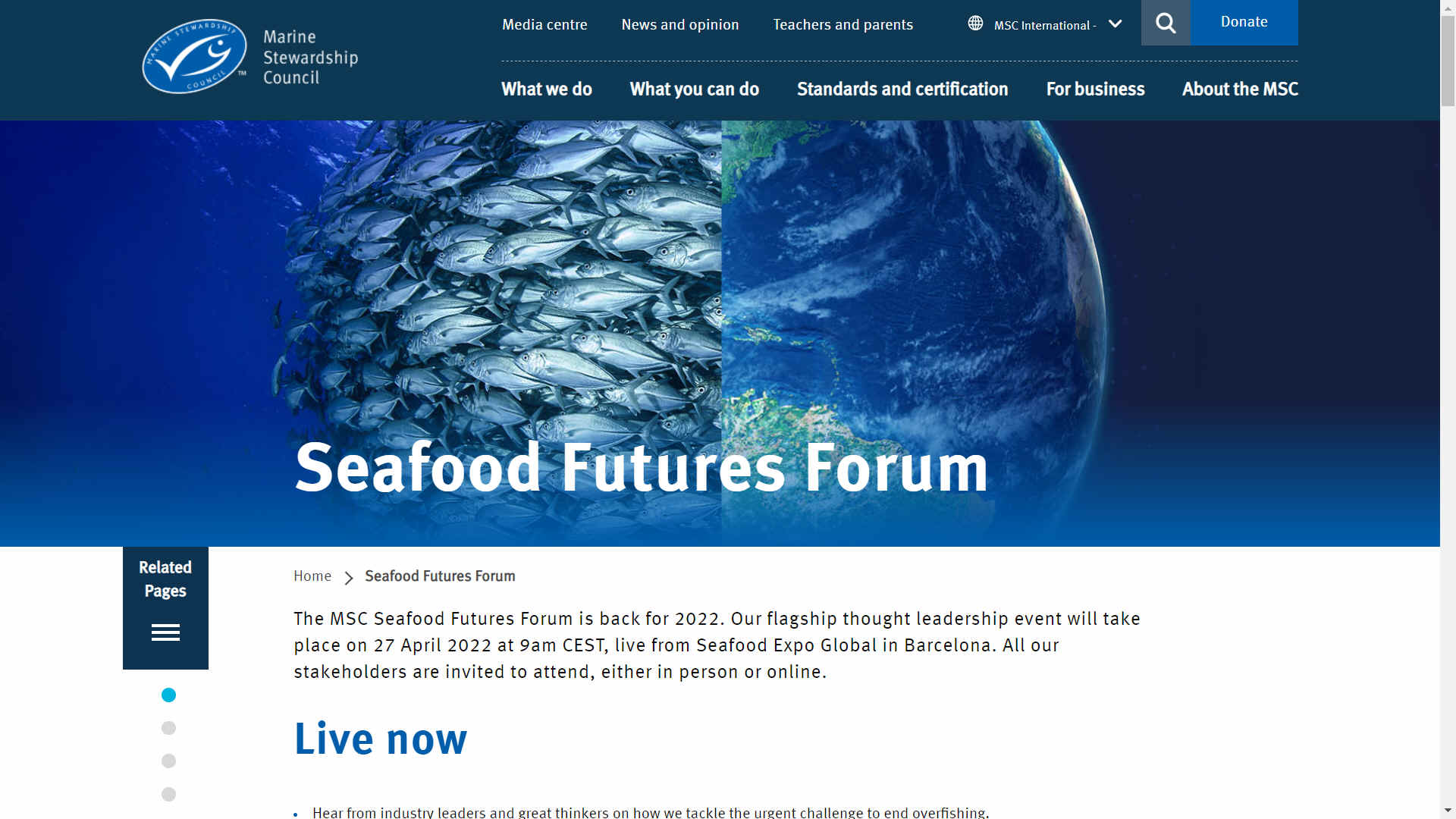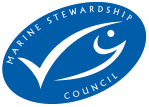|
The Seafood Futures Forum, was live from
Barcelona on the 27th April 2022. We heard from industry leaders and thinkers on how we tackle the urgent challenge to end
overfishing; get the latest insights from the MSC, including new research, programme developments and market trends; and hear from our panel of experts. As this is an interactive session, you will also be able to put your questions to the panel using the Slido app.
It
was immediately obvious from the discussion between a very experienced
and competent selection of speakers, that what was and is needed, is
statutory implementation to level the playing field between those who
are trying to do the right thing, and those who are not, because in not
sourcing fish that are sustainably caught or farmed, they have a
competitive edge. And it is all about the money.
The
onus is on politicians to explain why they have not, will not, and/or
did not act in sufficient time to prevent the extinction of fisheries,
by overfishing.
For
the most part only a small, informed fraction of the public, will steer
supermarkets to act responsibly, but that will not be enough to save our
fisheries, where the vast majority of shoppers are not informed. Hence,
sharp traders looking for profits, are likely to source fish and seafood
from dodgy sources, maybe even buy pirated quotas, that are illegal.
Meaning that such trading would be fraudulent, no doubt, the suppliers
using labels that are misleading, unless the source of the catch may be
traced and verified to be kosher and independently certified as such.
But, sadly, there are few protections in place, and enforcement
is minimal.
If
not contained via internationally binding legislation, humans are in
danger of fishing
out the sea. Eating us out of house and home, as it were, inevitably
leading to malnutrition, starvation and ultimately, death, for millions
of people - who we argue, and it appears the some of the Forum members
agree, have the right to expect that their future food supplies will be
safeguarded.
We
(COF) must
stress here that in our opinion, national legislation is not sufficient
on its own to be a solution. We have seen Cod Wars before, with Brexit
again seeing such tension surface. Rogue fishermen will always stray into
foreign territorial waters, unless restrained. Countries will always
seek to over-fish
in international waters. Where some countries may abstain from enacting
appropriate legislation, the remaining countries will be at risk - and
non-competitive. Money will always find takers, where commercial
advantage rests in ocean plunder.
Hence,
international consensus is very much a necessity, if the G20
nations are to ensure food
security for future generations, for the remaining 100+ nations, and
especially the Island
Nations, who are dependent on seafood for their survival, such as
those in the Caribbean
Sea.
COF
remains very much concerned as to carcinogenic plastic in the oceans,
further reducing fish stocks, and potentially making them inedible. Or
at least, making the contaminated fish more likely to be unhealthy.
Where we have been forced to abandon SeaVax
and RiverVax
projects for lack of support. We would urge stakeholders to support the
equivalent ocean and river cleanup protections, where plastic
use in on the increase. Again, as we have identified, a policy issue,
with the G20 players seriously under-performing, in allowing the
situation to continue without any effort at physical containment to date
(27 April 2022), and policies sadly lacking, as a means of dealing with
the problem by turning off the tap.
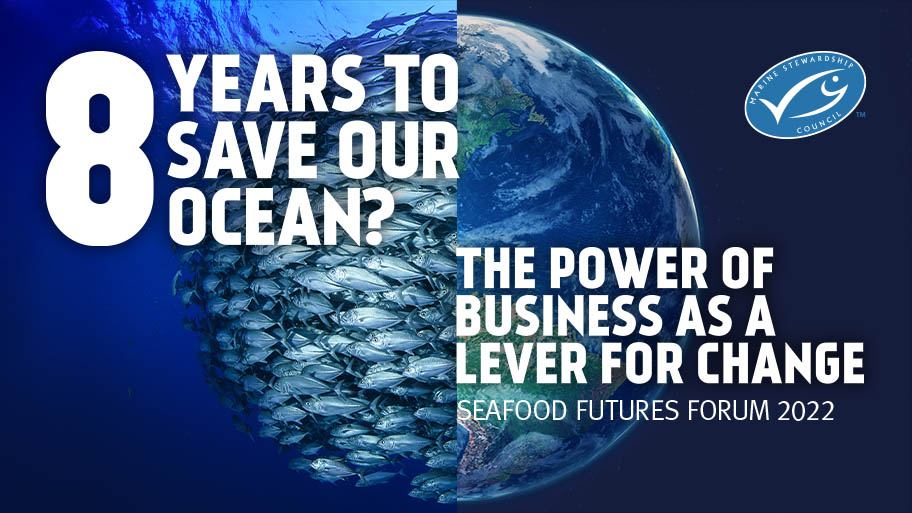
AGENDA
09:00 – 09:05 Video address – Peter Thomson, the UN Secretary-General's Special Envoy for the
Ocean
09:05 – 09:10 Scene setter and opening remarks – Rupert Howes, Chief Executive of MSC
09:10 – 09:25 Growth in sustainable seafood, an update from the MSC – Nicolas Guichoux, Chief Programming Officer, MSC
09:25 – 09:35 Keynote presentation – Justin King, leader in consumer-facing business and former CEO of Sainsbury’s
09:40 – 10:15 Moderated panel discussion: 8 years to save our ocean? The power of business as a lever for change.
10:15 – 10:30 Q&A from the audience
THE
PANEL
Presenter: Rupert Howes -
Chief Executive - Marine Stewardship Council
Presenter: Justin King CBE, former CEO Sainsburys
Presenter: Nicolas Guichoux -
Chief Program Officer,
Marine Stewardship Council
Presenter: Minna Epps -
Director - Global Marine & Polar Programme at the International Union for Conservation of Nature
Presenter: José Luis Jauregui -
Sustainability Manager,
fishing company Echebastar
Presenter: Michaela Reischl -
Head of CSR, Lidl Spain
Presenter: Natasja van den Berg -
Moderator: Co-founder of Tertium
EVENT
DATES & LOCATION
Wednesday,
27th April 2022, at 08:30am
MORE
ABOUT THE PANELISTS
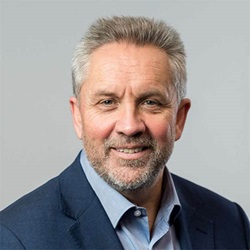
JUSTIN KING
Justin King has been a leader in customer-facing businesses for over three decades. He has served in many senior roles at leading companies, including Sainsbury's, M&S, Asda, Häagen-Dazs, PepsiCo & Mars.
An influential businessman in the retail industry, Justin is credited for having transformed one of the UK’s largest retailers, Sainsbury’s. At the beginning of his ten-year tenure at the company, he implemented a successful programme to ‘Make Sainsbury’s Great Again’. Under his leadership, the iconic British retailer trebled profits and delivered a shareholder return of 85%.
As an advocate for responsible business, Justin was instrumental in supporting Sainsbury’s early adoption of sustainable seafood, introducing the first MSC labelled products to the UK market. He also introduced the organisation’s long-term relationships with Comic Relief and the Paralympic Games.
Justin is currently a Non-Executive Director of M&S, where he was previously Head of Food. He is also a Non-Executive Director of retail software provider, Itim Group and serves on PWC’s Public Interest Body. He is also a Senior Adviser to rapid delivery company, Snappy Shopper and Investment Adviser to Supermarket Income REIT (SUPR).
To recognise his services to the retail industry, Justin was awarded a CBE in HM
The Queen’s New Year Honours List 2011 and in 2013 was named Most Admired Business Leader by Management Today. He has also served as a Member of the UK Prime Minister’s Business Advisory Group and was a board member of the London Organising Committee for the Olympic and Paralympic Games.
Justin is well known for his interest in motorsport. He served as interim Chairman of the Manor racing Formula One team, overseeing its recovery from administration in 2014. In 2019, Justin launched Made by Sport, a charity that champions the power of sport to transform young lives.
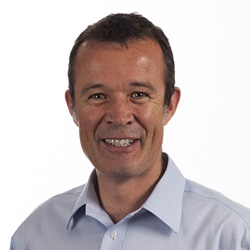
RUPERT HOWES
Chief Executive of the Marine Stewardship Council (MSC). Rupert joined the MSC in October 2004.
Today there are more than 450 MSC certified fisheries, compared with 11 in 2004, and the number of MSC labelled products has increased from around 200 to over 20,000. This is accompanied by growing evidence that MSC certified fisheries are amongst the highest performing in the world, demonstrating their leadership and the continual improvements they deliver.?
Rupert has been internationally recognised for his work to promote sustainable fishing practices. In 2014, he was awarded a Schwab Foundation Social Entrepreneurship Award, which recognizes leaders in sustainable social innovation. In 2009, he received the WWF “Leaders for a Living Planet” Award. He also received a Skoll Award for Social Entrepreneurship in 2007 for his contributions in establishing the MSC as the world’s leading fishery certification and ecolabelling program.
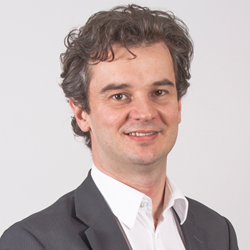
NICHOLAS GUICHOUX
Nicolas is the Global Commercial Director at the Marine Stewardship Council (MSC) and has been with the MSC since 2002. During this time, he has had a key role in the development of the organisation to where the programme is today.
Having graduated from the French Business School EDC, Nicolas started his career within international business in 1994 in South Korea at the French Chamber of Commerce. He was then appointed in 1997 as Export Manager for a leading French seafood processor, Cité Marine. Originally from Britany- the main fishing region in France- he was concerned by the increasing impact of fishing on the environment and on people’s livelihood. This led him to join the MSC in 2002 as the Manager for “continental” Europe and he later became the Regional Director of Europe in 2007.
He is currently responsible for ensuring that the MSC’s global commercial and fisheries outreach is coordinated and delivered effectively and efficiently. He is also responsible for ensuring that both the supply and demand for certified and sustainable seafood is increased in line with the MSC’s Integrated Strategic Plan’s (ISP’s) targets in Europe, as well as the Asia-Pacific and Americas. He provides leadership and strategic direction for dedicated regional teams, currently comprising of some 70 people around the world.

MINNA EPPS
Minna Epps is the Head of the International Union for Conservation of
Nature (IUCN’s) Ocean Team (Ocean Governance, Ocean and Climate
change, Marine pollution and Blue Natural capital). Minna has over 20 years of experience in international conservation and development work from the field to global policy. She brings her experience from IUCN,
European
Commission, UNEP,
WTO, and marine conservation NGOs, as well as eight years with the Marine Stewardship Council. Minna is a marine biologist with studies from Imperial College, Rhode Island School of Oceanography and UC Berkeley. She represents IUCN in various Ocean fora and networks, Strategic Adviser to the Blue Action Fund, and Chair of the Blue Natural Capital Funding Facility Executive Committee.

JOSE LUIS JAUREGUI
José Luis Jauregui has worked with Echebastar Pesqueras since 2003 where he has led the company’s long drive to demonstrate its sustainability through MSC certification. In his time at Echebastar José Luis has held directed the company’s marketing and sustainability initiatives. He currently advises the organisation on social, environmental and resource responsibilities.
José Luis’s career in seafood began as a ship’s captain. He has worked in the global transport and marketing of frozen tuna from the
Indian Ocean since 1993.
In 2018, the Echebastar Pesqueras, based in Bermeo, Spain, became the first purse seine tuna fishery to achieve MSC certification for catches on drifting fish aggregating devises (dFADs). Certification of the company’s six purse seiners followed considerable improvements to tuna fishing practices and management in the Indian Ocean and investments by the company to reduce bycatch and demonstrate sustainability.

MICHAELA REISCHL
Michaela Reischl joined Lidl Spain’s marketing team in 2007 and 6 years later, in 2013 created the company’s Corporate Social Responsibility department. Since then, she has developed and reinforced the CSR commitment of Lidl Spain focusing on areas such as healthy and sustainable food, commitment with collaborators, the environment and society. Michaela has 20 years’ experience working in the distribution sector, especially with multinationals in Spain. She has a master’s degree in Communication & Advertising from ESIC Madrid.
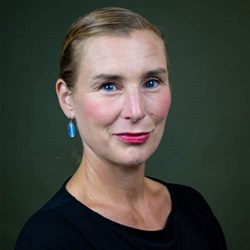
NATASJA VAN DEN BERG
Natasja van den Berg is a moderator and strategic advisor based in the Netherlands. She is co-founder of Tertium, an agency for strategic communication and participation that investigates how citizens can be involved in creating solutions for complex societal issues. Tertium designs participatory processes for ministries, cities, companies and societal organizations.
Natasja is also a member of the supervisory board of The Hunger Project.
SUSTAINABILITY
OBJECTIVES
The Marine Stewardship Council is an international non-profit
organisation committed to conserving our natural resources:
1. Recognising and rewarding sustainable fisheries and incentivising improvement
Today 14% of global marine catch is either certified or engaged in the MSC program.
They aim to increase this figure to 20% by 2020, with an ambition of more than a third by 2030.
To achieve this the MSC will focus efforts on ecosystems currently underrepresented in the MSC program, but where catches and the threat to biodiversity are high. In addition to
tuna and small pelagic species, new priority species will include
squid, octopus, crab and
seaweed. The MSC will also deliver new tools to better enable fisheries in the Global South to progress towards MSC certification. Over the next three years the MSC aims to double the number of fisheries from the Global South involved in its program.
2. Ensuring MSC certifications are credible and reflect global best practice
The MSC will maintain its focus on efforts to ensure
they continue to meet global best practice in sustainable fisheries management. New measures, for example for labour practices, will be introduced, along with new tools and systems to make the certification process more efficient, credible and user-friendly, such as digital auditing tools.
3. Cultivating and expanding sustainable seafood markets
They
will deepen engagement with key commercial partners and focus on building demand in markets that offer the biggest incentives to drive change on the water. This includes European markets of Germany, the UK, France, Spain and Italy, as well as the US, China and Japan.
4. Building public awareness and support and demonstrating science and impact
The
MSC will increase their scientific engagement and research, upgrading monitoring and evaluation systems and engaging in the wider ocean science and policy community.
They will also continue to invest in research to understand consumer demand for sustainable seafood and will deliver campaigns to build public awareness and support for sustainable fishing and the MSC’s ecolabel.
5. Enabling and Resourcing a High-Performing Global
Organisation
They
will focus their efforts on evolving, shaping and resourcing their
expanding global institution, to enable them to continue to support fisheries, supply chains and markets that are engaged in the MSC program.
VENUE
Barcelona,
Spain
|
